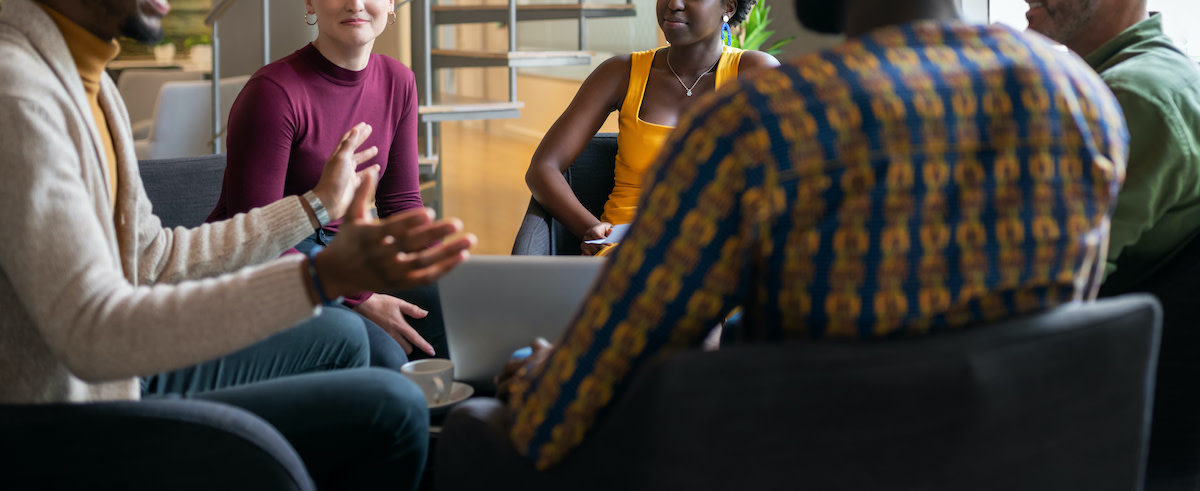Othering Definition: How to Combat Othering in Your Daily Life
Written by MasterClass
Last updated: Nov 13, 2022 • 4 min read
Othering is a social process of marginalization through which a person highly values their own group while denigrating and excluding anyone from a group different from theirs. This process lies at the heart of many societal ills, including racism, sexism, homophobia, and transphobia. Learn more about this social sciences concept and how to combat it.
Learn From the Best
What Is Othering?
The social psychology concept of othering refers to the process of excluding and marginalizing a person because of their race, ethnicity, gender identity, sexual orientation, class, or another demographic identifier. Rather than participating in a dialectic about a person’s individuality and innate dignity as a human being, otherization leads people to make premature judgments about another person’s character and personality.
Occasionally, an even more insidious and disturbing process of dehumanization can occur. This happens when a group takes the concept of othering so far they feel entitled to act unethically and maybe even cruelly toward an entire group of people on the basis of false or generalized pretenses.
Why Is Othering a Problem?
Othering allows a dominant group to justify mistreating a marginalized group, even to the point of stripping them of basic human rights. As soon as enough people believe a hierarchy exists between their group and another one, the dominant group becomes more likely to act in a dehumanizing manner toward the minority one.
3 Signs of Othering
Othering is a process you might not even realize you’re engaged in at first. Keep an eye out for these three signs to see if you might be unconsciously engaging in this practice of social exclusion and marginalization:
- 1. Avoiding interactions: Suppose you meet someone for the first time and immediately take a dislike to them before you even get a chance to substantively speak to each other. From that point forward, you try to avoid the person whenever you see them again. It’s likely you’ve cast them as “the other” in this scenario.
- 2. Feeling distrust: Imagine your car breaks down by the side of the road and a person who differs from you in some way pulls over to help you. You feel uneasy about them, so you thank them for their concern, say you’re fine, and then encourage them to move along. Now imagine a person who looks similar to you comes along and you gladly accept their help. The first person belonged to a different identity group than you (or an out-group) and the second possessed all the same external attributes as you do (as part of the same in-group). If you tend to trust or distrust individual human beings based on the metrics in this example, it’s quite possible you’re engaged in othering.
- 3. Making generalized statements: Perhaps you often speak in broad strokes, making expansive and negative categorizations about entire swaths of people, either in earnest or for comedic effect. Consider asking yourself why you think this is an acceptable and accurate subject of conversation. Alternatively, maybe you’re a member of the middle class and associate exclusively with people from the same income bracket in which you reside, even though you never outwardly denigrate people of the lower classes. In either of these cases, you might be valuing group identities over individual personalities.
How to Combat Othering
Combating false and harmful social constructions is paramount to creating a more just, inclusive, and equitable society. Remember these words of advice when doing your part to fight against othering:
- Be aware of unconscious bias. Your own social identity and conditioning can lead you to participate in the process of othering without even realizing it. Unconscious bias refers to the potentiality you might marginalize people of a different social group despite holding very different and much more inclusive values on a conscious level. Evaluate your personal relationships and your daily interactions with strangers to see if you might be doing so.
- Educate yourself. Read about the plight of marginalized social groups, as well as about their most joyful moments and accomplishments. Educate yourself about how othering has played out negatively throughout history. As you learn about human beings of all different groups, seek out the similarities between groups at the same time you celebrate some of the differences, too.
- Meet new people. Dedicate yourself to bridging the gap between your own perceived in-group and various so-called out-groups. This sort of intergroup mingling will quickly reveal the commonalities you share with people of all different backgrounds. When you stop falling back on stereotypes and harmful social constructs, you open yourself up to the opportunity of meeting a wide plethora of new friends.
- View people as individuals. While it’s sometimes important to remember the trials of certain groups of people or celebrate what makes them unique, remember the importance of viewing everyone you meet as a unique individual with their own story. To judge them prematurely because of the group they’re from is the very definition of prejudice and othering.
Want to Learn How to Be More Empathetic?
Practicing empathy can help you lead more effectively while building stronger relationships across the personal and professional facets of your life. Challenge your perceptions with the MasterClass Annual Membership and take lessons on emotional intelligence from Pharrell Williams, Roxane Gay, Gloria Steinem, Dr. Cornel West, Walter Mosley, Robert Reffkin, and Robin Arzón.
